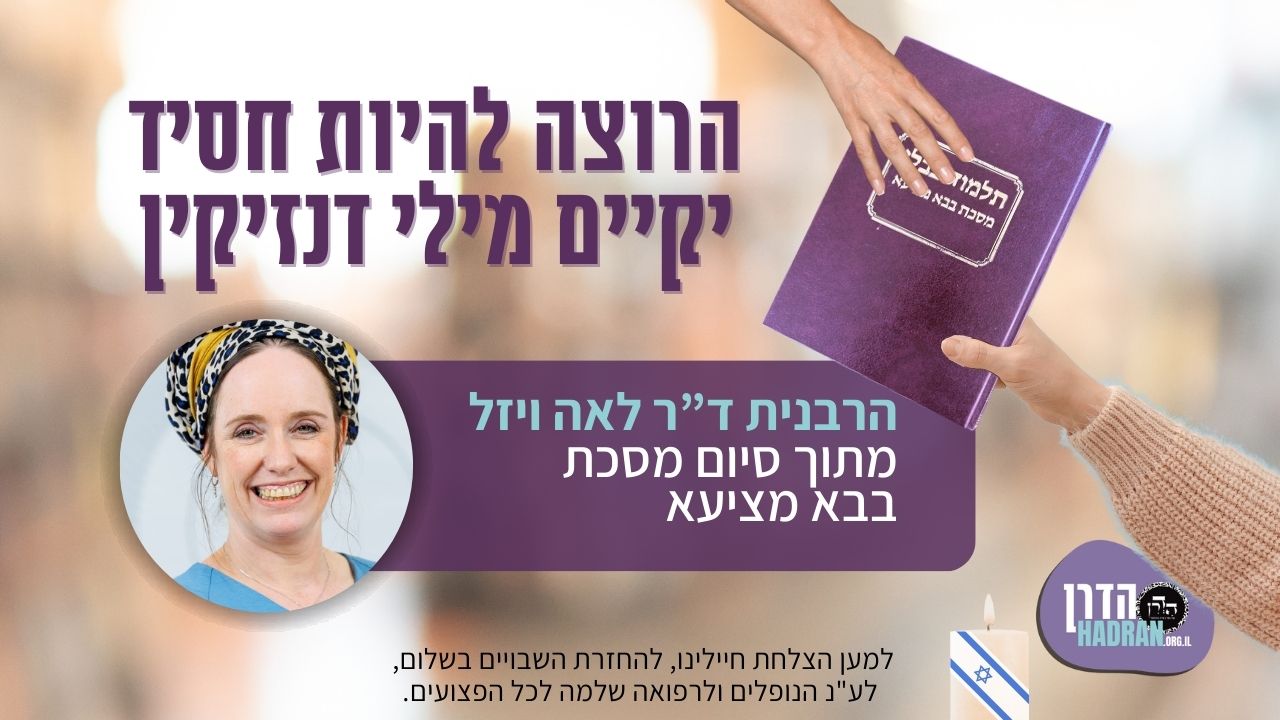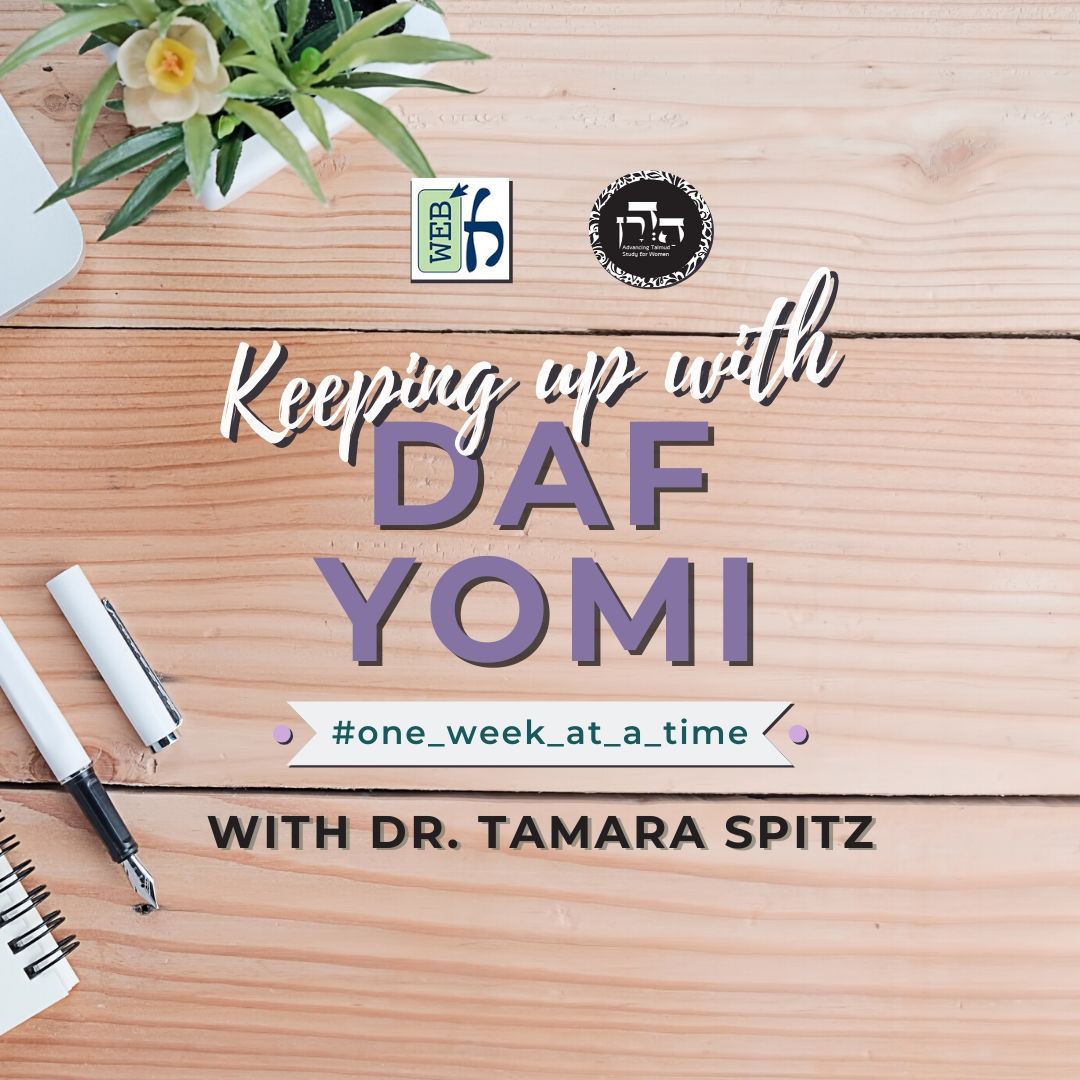בבא מציעא יז
וְאָמַר ״פָּרַעְתִּי״ – נֶאֱמָן. בָּא מַלְוֶה לִכְתּוֹב – אֵין כּוֹתְבִין וְנוֹתְנִין לוֹ.
and later on the debtor said: I repaid him, his claim is deemed credible. He must take an oath and is exempt from payment. Therefore, if the creditor comes and asks the court to write an authorization for him to appropriate the property of the debtor, they do not write an authorization and give the document to him.
״חַיָּיב אַתָּה לִיתֵּן לוֹ״ וְאָמַר ״פָּרַעְתִּי״ – אֵינוֹ נֶאֱמָן. בָּא מַלְוֶה לִכְתּוֹב – כּוֹתְבִין וְנוֹתְנִין לוֹ.
By contrast, if the court merely said: You are liable to give him what you owe him, but did not complete the process by saying: Go and give it to him, and later on the debtor said: I repaid the debt, his claim is not deemed credible. The assumption is that since he did not pay on his own without the need for litigation, he does not intend to pay until the court finalizes its verdict against him. Therefore, since the debtor is suspected of lying, the creditor takes an oath and collects what he is owed. In this case, if the creditor comes and asks the court to write an authorization for him to appropriate the property of the debtor, they write the document and give it to him.
רַב זְבִיד מִשְּׁמֵיהּ דְּרַב נַחְמָן אָמַר: בֵּין ״צֵא תֵּן לוֹ״, בֵּין ״חַיָּיב אַתָּה לִיתֵּן לוֹ״, וְאָמַר ״פָּרַעְתִּי״ – נֶאֱמָן. בָּא מַלְוֶה לִכְתּוֹב – אֵין כּוֹתְבִין וְנוֹתְנִין לוֹ.
Rav Zevid says in the name of Rabbi Naḥman: Both in the case where the court said: Go and give him what you owe him, and in the case where the court said: You are liable to give him, if the debtor subsequently said: I repaid the debt, his claim is deemed credible. Therefore, if the creditor comes and asks the court to write an authorization, they do not write the document and give it to him.
אֶלָּא אִי אִיכָּא לְפַלּוֹגֵי – הָכִי הוּא דְּאִיכָּא לְפַלּוֹגֵי: אָמְרוּ לוֹ ״צֵא תֵּן לוֹ״, וְאָמַר ״פָּרַעְתִּי״, וְהָעֵדִים מְעִידִין אוֹתוֹ שֶׁלֹּא פְּרָעוֹ, וְחָזַר וְאָמַר ״פָּרַעְתִּי״ – הוּחְזַק כַּפְרָן לְאוֹתוֹ מָמוֹן.
Rather, if there is room to make a distinction between different cases, this is how there is room to distinguish between them: If the court said to the debtor: Go and give him what you owe him, and subsequently the debtor said: I repaid the debt, and the witnesses testify concerning him that he did not repay it when the debt was demanded in their presence, and later the debtor said again: I repaid the debt, in such a case, the debtor has assumed the presumptive status of one who denies his debts with regard to that money, and he is no longer believed when he claims that he repaid the debt unless witnesses substantiate his claim.
״חַיָּיב אַתָּה לִיתֵּן לוֹ״, וְאָמַר ״פָּרַעְתִּי״, וְהָעֵדִים מְעִידִין אוֹתוֹ שֶׁלֹּא פָּרַע, וְחָזַר וְאָמַר ״פָּרַעְתִּי״ – לֹא הוּחְזַק כַּפְרָן לְאוֹתוֹ מָמוֹן.
By contrast, if the court said: You are liable to give him what you owe him, and subsequently the debtor said: I repaid the debt, and the witnesses testify concerning him that he did not repay the debt when it was demanded in their presence, and later the debtor said again: I repaid, in this case, the debtor does not assume the presumptive status of one who denies his debts with regard to that money. His claim that he repaid the debt in the absence of witnesses is accepted after he takes an oath to that effect.
מַאי טַעְמָא? אִשְׁתְּמוֹטֵי הוּא קָא מִשְׁתְּמִיט מִינֵּיהּ, סָבַר עַד דִּמְעַיְּינוּ בִּי רַבָּנַן בְּדִינִי.
What is the reason that he is not presumed to be lying? It is because before the court verdict was finalized, the debtor was merely trying to evade the creditor, thinking to himself: Since the court has not yet finalized the verdict, I can delay payment until the Sages in the court investigate my case further, as I am not actually liable to pay until the verdict is finalized.
אָמַר רַבָּה בַּר בַּר חָנָה אָמַר רַבִּי יוֹחָנָן: ״מָנֶה לִי בְּיָדְךָ״, וְהַלָּה אוֹמֵר: ״אֵין לְךָ בְּיָדִי כְּלוּם״, וְהָעֵדִים מְעִידִים אוֹתוֹ שֶׁיֵּשׁ לוֹ, וְחָזַר וְאָמַר: ״פָּרַעְתִּי״ – הוּחְזַק כַּפְרָן לְאוֹתוֹ מָמוֹן.
Rabba bar bar Ḥanna says that Rabbi Yoḥanan says: If one says to another: I have one hundred dinars in your possession that you borrowed from me, and the other says in response: Nothing of yours is in my possession, and the witnesses testify concerning him that, in fact, he does have such a debt, and subsequently the debtor said: I repaid the debt, in that case the debtor assumes the presumptive status of one who denies his debts with regard to that money.
כִּי הָא דְּשַׁבְּתַאי בְּרֵיהּ דְּרַבִּי מָרִינוּס כְּתַב לַהּ לְכַלְּתֵיהּ אִיצְטְלָא דְמֵילָתָא בִּכְתוּבְּתַהּ, וְקַבְּלַהּ עֲלֵיהּ. אִירְכַס כְּתוּבְּתַהּ. אֲמַר לַהּ: ״לָא הָיוּ דְּבָרִים מֵעוֹלָם״. אֲתוֹ סָהֲדֵי וְאָמְרִי: אִין כְּתַב לַהּ. לְסוֹף אֲמַר לְהוּ: ״פְּרַעְתִּיהָ״. אֲתָא לְקַמֵּיהּ דְּרַבִּי חִיָּיא, אֲמַר לֵיהּ: הוּחְזַקְתָּ כַּפְרָן לְאוֹתָהּ אִיצְטְלָא.
It is like the ruling in this case, where Shabbtai, son of Rabbi Marinus, wrote a pledge to give his daughter-in-law a cloak [itztela] of fine wool [demileta] in her marriage contract, and he accepted upon himself the status of a guarantor for the contract. Her marriage contract was lost, and there was a disagreement between the parties as to its content. Shabbtai said to her: These matters never occurred; I never wrote that I would give you such a cloak. Witnesses then came and said: Yes, he did write her this pledge. Ultimately, he said to them: I paid it, i.e., I gave her the cloak. This case came before Rabbi Ḥiyya. He said to Shabbtai: You have assumed the presumptive status of one who denies his debts with regard to that cloak. His claim was therefore not accepted, even by means of an oath.
אָמַר רַבִּי אָבִין אָמַר רַבִּי אִלְעָא אָמַר רַבִּי יוֹחָנָן: הָיָה חַיָּיב לַחֲבֵירוֹ שְׁבוּעָה, וְאָמַר ״נִשְׁבַּעְתִּי״, וְהָעֵדִים מְעִידִין אוֹתוֹ שֶׁלֹּא נִשְׁבַּע, וְחָזַר וְאָמַר ״נִשְׁבַּעְתִּי״ – הוּחְזַק כַּפְרָן לְאוֹתָהּ שְׁבוּעָה.
Rabbi Avin says that Rabbi Ela says that Rabbi Yoḥanan says: If one was obligated to take an oath to counter another person’s claim brought against him, and later he said: I took the oath, and the witnesses testify against him that he did not take an oath when it was demanded of him in their presence, and the defendant subsequently said again: I took the oath, he assumes the status of one who denies his obligations with regard to that oath.
אַמְרוּהָ קַמֵּיהּ דְּרַבִּי אֲבָהוּ, אֲמַר לְהוּ: מִסְתַּבְּרָא מִלְּתָא דְּרַבִּי אָבִין שֶׁנִּתְחַיֵּיב שְׁבוּעָה בְּבֵית דִּין, אֲבָל חִיֵּיב עַצְמוֹ שְׁבוּעָה – [נֶאֱמָן]. עָבֵיד אִינִישׁ דְּמִקְּרֵי וְאָמַר. אַהְדְּרוּהָ קַמֵּיהּ דְּרַבִּי אָבִין, אֲמַר לְהוּ: אֲנָא נָמֵי בְּבֵית דִּין אֲמַרִי.
The Rabbis stated this ruling before Rabbi Abbahu. He said to them: Rabbi Avin’s statement is reasonable in a case where one was obligated by a court to take an oath. But if one voluntarily obligated himself to take an oath, and he later claims that he took the oath, he is deemed credible. This is because a person is prone to say incidentally that he will take an oath and then change his mind; this does not render him a liar. The Rabbis then brought Rabbi Abbahu’s analysis back to Rabbi Avin and presented it before him. Rabbi Avin said to them: I also said this halakha specifically with regard to one who was obligated by a court to take an oath, as Rabbi Abbahu explained.
אִיתְּמַר נָמֵי, אָמַר רַבִּי אָבִין אָמַר רַבִּי אִלְעָא אָמַר רַבִּי יוֹחָנָן: הָיָה חַיָּיב לַחֲבֵירוֹ שְׁבוּעָה בְּבֵית דִּין וְאָמַר ״נִשְׁבַּעְתִּי״ וְהָעֵדִים מְעִידִין אוֹתוֹ שֶׁלֹּא נִשְׁבַּע, וְחָזַר וְאָמַר ״נִשְׁבַּעְתִּי״ – הוּחְזַק כַּפְרָן לְאוֹתָהּ שְׁבוּעָה.
It was also stated that Rabbi Avin says that Rabbi Ela says that Rabbi Yoḥanan says: If one was obligated by a court to take an oath to counter the claim of another person, and he subsequently said: I took the oath, and the witnesses testify against him that he did not take an oath when it was demanded of him in their presence, and later the defendant said again: I took the oath, he has assumed that status of one who denies his obligations with regard to that oath. This wording is explicitly in accordance with Rabbi Abbahu’s explanation.
אָמַר רַבִּי אַסִּי אָמַר רַבִּי יוֹחָנָן: הַמּוֹצֵא שְׁטַר חוֹב בַּשּׁוּק, וְכָתוּב בּוֹ הֶנְפֵּק, וְכָתוּב בּוֹ זְמַנּוֹ בּוֹ בַּיּוֹם – יַחְזִירוֹ לַבְּעָלִים.
§ Rabbi Asi says that Rabbi Yoḥanan says: With regard to one who finds a promissory note in the marketplace, and a ratification is written in it, and the date of the loan is written in it, and evidently it was written on that same day, he must return it to the owner, i.e., the creditor.
אִי מִשּׁוּם כָּתַב לִלְוֹת וְלֹא לָוָה – הָא כָּתוּב בּוֹ הֶנְפֵּק. אִי מִשּׁוּם פֵּרָעוֹן – לִפְרִיעָה בַּת יוֹמָא לָא חָיְישִׁינַן.
The Gemara explains why there is no concern that perhaps the debtor does not owe the money: If one were to be concerned because perhaps the debtor wrote the promissory note intending to borrow money, but he ultimately did not borrow it, this is not a concern, as a ratification is written in the promissory note. Since only the creditor would have brought the note for ratification, it is clear that the loan occurred. And if one were to be concerned because perhaps there was repayment, this is not a concern, as we are not concerned that there was repayment on the same day that the loan was taken, since normally one would not take a loan for less than one day.
אֲמַר לֵיהּ רַבִּי זֵירָא לְרַבִּי אַסִּי: מִי אָמַר רַבִּי יוֹחָנָן הָכִי? הָא אַתְּ הוּא דְּאָמְרַתְּ מִשְּׁמֵיהּ דְּרַבִּי יוֹחָנָן: שְׁטָר שֶׁלָּוָה בּוֹ וּפְרָעוֹ – אֵינוֹ חוֹזֵר וְלֹוֶה בּוֹ, שֶׁכְּבָר נִמְחַל שִׁיעְבּוּדוֹ.
Rabbi Zeira said to Rabbi Asi: Does Rabbi Yoḥanan actually say this? Isn’t it you who said in the name of Rabbi Yoḥanan that one who borrowed money and wrote a promissory note for the loan, and subsequently repaid the debt, may not reuse it to borrow another time, as its lien is already forgiven by virtue of the repayment? A promissory note is valid only for the debt for which it was written.
אֵימַת? אִילֵּימָא לִמְחַר וּלְיוֹמָא חָרָא, מַאי אִרְיָא שֶׁכְּבָר נִמְחַל שִׁעְבּוּדוֹ? תִּיפּוֹק לֵיהּ דְּהָוֵה לֵיהּ מוּקְדָּם, וּתְנַן: שִׁטְרֵי חוֹב הַמּוּקְדָּמִין – פְּסוּלִין.
Rabbi Zeira explains: When did the debtor take the second loan? If we say that it was the day after the first loan, when the promissory note was written, or another later date, then Rabbi Yoḥanan’s statement is difficult. Why does he specifically give as the reason for the promissory note’s disqualification: As its lien is already forgiven? Instead, he should derive the disqualification of the promissory note from the fact that it is antedated, i.e., dated prior to the actual loan, and we learned in a mishna (Shevi’it 10:5): Antedated promissory notes are invalid. Therefore, Rabbi Yoḥanan could not have been referring to a case where the second loan took place after the date of the first loan.
אֶלָּא לָאו בְּיוֹמֵיהּ. אַלְמָא פָּרְעִי אִינָשֵׁי בְּיוֹמֵיהּ!
Rather, is Rabbi Yoḥanan’s statement not referring to a case where the second loan took place on the same day as the first loan? Evidently, people do occasionally repay their loans on the same day as they take the loan.
אֲמַר לֵיהּ: מִי קָא אָמֵינָא דְּלָא פָּרְעִי כְּלָל, דְּלָא שְׁכִיחִי אִינָשֵׁי דְּפָרְעִי בְּיוֹמֵיהּ קָא אָמֵינָא.
Rabbi Asi said to him: Did I say that people do not repay their loans on the same day at all? Rather, I said that it is uncommon for people to repay their loans on the same day. Therefore, if a note is found on the same day it was written, it is reasonable to assume that it has not yet been repaid, even though there is a remote possibility that it has.
רַב כָּהֲנָא אָמַר: כְּשֶׁחַיָּיב מוֹדֶה. אִי הָכִי מַאי לְמֵימְרָא?
Rav Kahana says an alternative explanation: Rabbi Yoḥanan is referring to a case when the liable party, i.e., the debtor, admits to the debt. The Gemara asks: If that is so, what is the purpose of stating that the note may be returned? This is obvious.
מַהוּ דְּתֵימָא: הַאי מִפְרָע פַּרְעֵיהּ, וְהַאי דְּקָא אָמַר לָא פְּרַעְתֵּיהּ, מִשּׁוּם דְּקָבָעֵי מֶהְדַּר לְמֵזְפָא בֵּיהּ זִמְנָא אַחֲרִיתִי, וְלִפְשִׁיטֵי דְסָפְרָא חָיֵישׁ, קָא מַשְׁמַע לַן דְּאִם כֵּן מַלְוֶה גּוּפֵיהּ לָא שָׁבֵק. סָבַר: שָׁמְעִי בֵּי רַבָּנַן וּמַפְסְדִי לִי.
The Gemara answers: Lest you say that even if this debtor admits to the debt, perhaps he actually repaid it, and the fact that the debtor says: I did not repay it, is because he wants to go back and use the promissory note to borrow money again. And the reason he prefers to claim that he did not repay the first debt is that he is concerned about saving the scribe’s fee that he would have to pay for another promissory note. Therefore, Rabbi Yoḥanan teaches us that this possibility need not be taken into account, as, if that were so, the creditor himself would not allow such a scheme. He would be afraid to act in such a manner, thinking: The Sages will hear about me that I reused the note, and will cause me to lose the payment owed to me.
מַאי שְׁנָא מֵהָא דִּתְנַן: מָצָא שִׁטְרֵי חוֹב, אִם יֵשׁ בָּהֶן אַחְרָיוּת נְכָסִים – לֹא יַחֲזִיר,
The Gemara asks: In what way is this case different from that which we learned in a mishna (12b): With regard to one who found promissory notes, if they include a property guarantee for a loan, he may not return them to the creditor.
וְאוֹקִימְנָא, כְּשֶׁחַיָּיב מוֹדֶה. וּמִשּׁוּם שֶׁמָּא כָּתַב לִלְוֹת בְּנִיסָן וְלֹא לָוָה עַד תִּשְׁרֵי, וְאָתֵי לְמִטְרַף לָקוֹחוֹת מִנִּיסָן וְעַד תִּשְׁרֵי שֶׁלֹּא כַּדִּין.
And we interpreted this mishna as referring to a case when the liable party admits to the debt. And the reason the promissory notes may not be returned is due to the concern that perhaps the debtor wrote the note in order to borrow the money in Nisan, but he ultimately did not borrow it until Tishrei, and the creditor will come to unlawfully repossess land from purchasers who bought the debtor’s land between Nisan and Tishrei. He is entitled to collect land only from those who bought land from the debtor after the loan took place, causing the lien on the debtor’s land to take effect.
וְלָא אָמְרִינַן דְּאִם כֵּן מַלְוֶה גּוּפֵיהּ לָא שָׁבֵיק. דְּאָמַר לֵיהּ: כְּתוֹב שְׁטָרָא אַחֲרִינָא בְּתִשְׁרִי, דְּדִלְמָא שָׁמְעִי רַבָּנַן וּמַפְסְדִי לִי!
The Gemara points out the contradiction between this mishna and Rabbi Kahana’s explanation of Rabbi Yoḥanan’s statement: And this indicates that we do not say that if that were so, if the promissory note were antedated, the creditor himself would not allow the debtor to use it, as he would say to him: Write another note dated properly in Tishrei, lest the Sages hear about the fact that the date is incorrect and disqualify the promissory note, causing me to lose the money.
אָמְרִי: הָתָם, מִשּׁוּם דְּאִית לֵיהּ רַוְוחָא דְּקָא טָרֵיף לָקוֹחוֹת מִנִּיסָן וְעַד תִּשְׁרֵי, מֵינָח נִיחָא לֵיהּ וְלָא אָמַר וְלָא מִידֵּי. הָכָא, כֵּיוָן דְּלֵית לֵיהּ רַוְוחָא, דְּסוֹף סוֹף שְׁטָרָא הָאִידָּנָא כְּתִיב, מַאי אִיכָּא – דְּקָטָרֵיף לָקוֹחוֹת? בִּשְׁטָר שֶׁנִּמְחַל שִׁיעְבּוּדוֹ לָא שָׁבֵיק.
The Gemara answers: The Sages say that there, in the case of the mishna, since the creditor benefits by using this promissory note, as he can repossess land from purchasers who bought from the debtor between Nisan and Tishrei, it is satisfactory to him, and he does not say anything to the debtor about using this promissory note. By contrast, here, in the case to which Rabbi Yoḥanan is referring, since the creditor does not benefit from reusing the promissory note, as ultimately, the note is written for the current date, what is there for him to repossess from purchasers by means of the note that he cannot repossess by means of a new promissory note? Therefore, he would not allow the debtor to borrow more money from him with a promissory note whose lien was forgiven, as this would result only in risk and have no potential benefit.
אָמַר רַבִּי חִיָּיא בַּר אַבָּא אָמַר רַבִּי יוֹחָנָן: הַטּוֹעֵן אַחַר מַעֲשֵׂה בֵּית דִּין –
§ Rabbi Ḥiyya bar Abba says that Rabbi Yoḥanan says: With regard to one who claims to have repaid a debt that has already been established by a court enactment, i.e., a rabbinic ordinance obligating one to pay a debt, e.g., the main sum in a marriage contract, but he has no witnesses,
לֹא אָמַר כְּלוּם. מַאי טַעְמָא? כׇּל מַעֲשֵׂה בֵּית דִּין – כְּמַאן דְּנָקֵיט שְׁטָרָא בִּידֵיהּ דָּמֵי.
he has said nothing. His claim is not accepted. What is the reason that he is not believed? It is because one who is owed any money based on a court enactment is considered like one who is holding a promissory note in his hand, against which a claim of repayment is not accepted without supporting evidence.
אֲמַר לֵיהּ רַבִּי חִיָּיא בַּר אַבָּא לְרַבִּי יוֹחָנָן: וְלֹא מִשְׁנָתֵינוּ הִיא זוֹ? הוֹצִיאָה גֵּט וְאֵין עִמּוֹ כְּתוּבָּה – גּוֹבָה כְּתוּבָּתָהּ.
Rabbi Ḥiyya bar Abba said to Rabbi Yoḥanan: But what are you adding? Isn’t this principle stated in a mishna (Ketubot 88b), which teaches: If a woman produced a bill of divorce, and there was no accompanying marriage contract, she collects payment of her marriage contract? This is an example of Rabbi Yoḥanan’s principle that a court enactment enables one to collect a debt even without the relevant document.
אֲמַר לֵיהּ: אִי לָאו דְּדַלַּאי לָךְ חַסְפָּא, לָא מַשְׁכַּחַתְּ מַרְגָּנִיתָא תּוּתַהּ.
Rabbi Yoḥanan said to him: True, this mishna is a source for my principle; but had I not lifted up the shard for you, you would not have found a pearl beneath it. In other words, if Rabbi Yoḥanan had not pointed out the principle, Rabbi Ḥiyya bar Abba would not have realized that it was underlying the ruling of the mishna.
אָמַר אַבָּיֵי: מַאי מַרְגָּנִיתָא? דִּלְמָא בִּמְקוֹם שֶׁאֵין כּוֹתְבִין כְּתוּבָּה עָסְקִינַן, דְּגֵט הַיְינוּ כְּתוּבְּתַהּ. אֲבָל בִּמְקוֹם שֶׁכּוֹתְבִין כְּתוּבָּה, אִי נְקִיטָא כְּתוּבָּה – גָּבְיָא, אִי לָא – לָא גָּבְיָא.
Abaye said: What qualifies this proof as a pearl? It is not a compelling proof, as perhaps in the mishna we are dealing with a place where they do not write a marriage contract, as in such a place, a woman’s bill of divorce is the same as her marriage contract. But in a place where they do write a marriage contract, if she is holding a marriage contract then she collects payment, and if not, she does not collect payment. There is no proof from the mishna in support of Rabbi Yoḥanan’s principle.
הֲדַר אָמַר אַבָּיֵי: לָאו מִלְּתָא הִיא דְּאָמְרִי, דְּאִי סָלְקָא דַעְתָּךְ בִּמְקוֹם שֶׁאֵין כּוֹתְבִין כְּתוּבָּה עָסְקִינַן, אֲבָל בִּמְקוֹם שֶׁכּוֹתְבִין כְּתוּבָּה, אִי נְקִיטָא כְּתוּבָּה – גָּבְיָא, אִי לָא – לָא גָּבְיָא, אַלְמָנָה מִן הָאֵירוּסִין בְּמַאי גָּבְיָא?
Abaye then said: What I said is not correct. As, if it enters your mind that we are dealing with a place where they do not write a marriage contract, but in a place where they do write a marriage contract, if she is holding a marriage contract then she collects payment, and if not she does not collect payment, then through what means does a widow from her betrothal collect payment of her marriage contract? She has neither a marriage contract nor a bill of divorce.
בְּעֵדֵי מִיתַת בַּעַל – לִטְעוֹן וְלֵימָא: פְּרַעְתִּיהָ. וְכִי תֵּימָא: הָכִי נָמֵי, אִם כֵּן מָה הוֹעִילוּ חֲכָמִים בְּתַקָּנָתָן?
If it is suggested that she can collect payment by means of witnesses to the death of her husband, let the husband’s heir, from whom she is demanding payment, claim and say: I paid it; she has no proof that she did not receive the money. And if you would say that indeed, the heir can claim that he has paid what he owes, if so, what did the Sages accomplish with their ordinance that a widow from betrothal receives payment of her marriage contract? The heirs can always exempt themselves.
אֲמַר לֵיהּ מָר קַשִּׁישָׁא בְּרֵיהּ דְּרַב חִסְדָּא לְרַב אָשֵׁי: וְאַלְמָנָה מִן הָאֵירוּסִין, דְּאִית לַהּ כְּתוּבָּה מְנָא לַן?
Mar Kashisha, son of Rav Ḥisda, said to Rav Ashi, questioning the underlying assumption of Abaye: And from where do we derive that a widow from her betrothal has the right to receive payment of her marriage contract?
אִילֵּימָא מֵהָא דִּתְנַן: נִתְאַרְמְלָה אוֹ נִתְגָּרְשָׁה, בֵּין מִן הָאֵירוּסִין וּבֵין מִן הַנִּישּׂוּאִין – גּוֹבָה אֶת הַכֹּל, דִּלְמָא הֵיכָא דִּכְתַב לַהּ?
If we say that this halakha is derived from that which we learned in a mishna (Ketubot 54b): If a woman became widowed or divorced, whether from betrothal or from marriage, she collects all that she is entitled to, both the main sum of her marriage contract instituted by the Sages and the additional sum that her husband added; that mishna cannot serve as a source for the halakha that a widow from her betrothal has the right to receive payment of her marriage contract. As perhaps the mishna is referring to a case where the husband wrote a marriage contract for her, but if he did not, she does not receive any money at all.
וְכִי תֵּימָא: מַאי לְמֵימְרָא?! לְאַפּוֹקֵי מִדְּרַבִּי אֶלְעָזָר בֶּן עֲזַרְיָה, דְּאָמַר שֶׁלֹּא כָּתַב לָהּ אֶלָּא עַל מְנָת לְכוֹנְסָהּ אִצְטְרִיכָא לֵיהּ.
And if you would say: In that case, what is the purpose of stating this halakha since it is obvious that she can collect payment if she has a written contract, then one could respond that it is stated to exclude the opinion of Rabbi Elazar ben Azarya, who says that a widow from betrothal does not receive that which the husband committed to pay in the marriage contract, as he wrote the marriage contract only on the condition that he would marry her. He did not intend to obligate himself in a situation where he died before their marriage. Therefore, it was necessary for the mishna to mention that a widow from betrothal who has a written marriage contract collects payment.
דַּיְקָא נָמֵי, דְּקָתָנֵי: גּוֹבָה אֶת הַכֹּל. אִי אָמְרַתְּ בִּשְׁלָמָא דִּכְתַב לַהּ, הַיְינוּ דְּקָא תָּנֵי גּוֹבֶה אֶת הַכֹּל. אֶלָּא אִי אָמְרַתְּ דְּלָא כְּתַב לַהּ,
The language of the mishna is also precise according to this understanding, as it teaches: She collects all that she is entitled to. Granted, if you say that the mishna is referring to a case where the husband wrote her a marriage contract, this is why the mishna teaches that she collects all that she is entitled to, i.e., even the amount that the husband added to the main sum of the marriage contract. But if you say that it is referring a case where he did not write her a marriage contract,








































